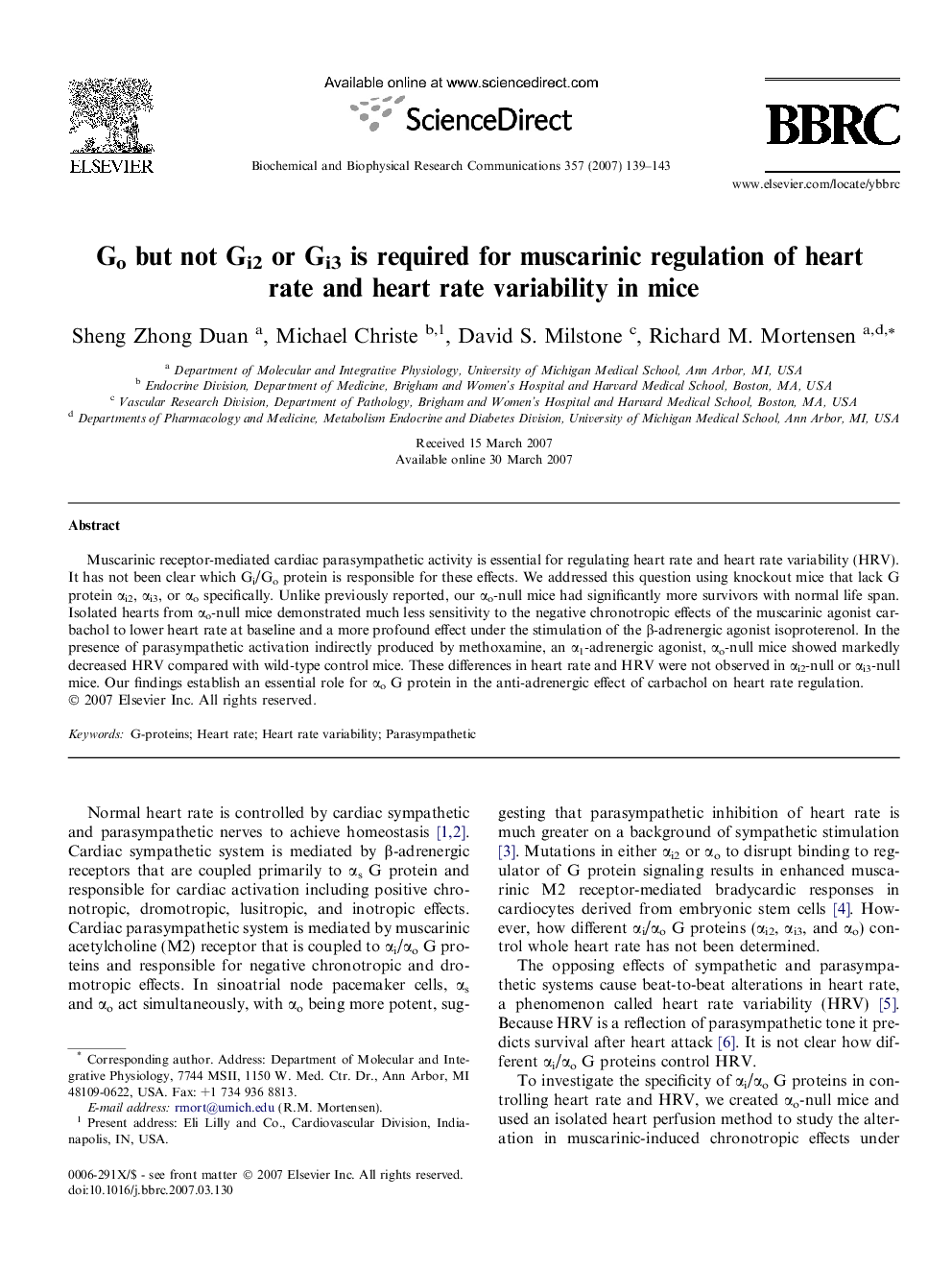| Article ID | Journal | Published Year | Pages | File Type |
|---|---|---|---|---|
| 10767360 | Biochemical and Biophysical Research Communications | 2007 | 5 Pages |
Abstract
Muscarinic receptor-mediated cardiac parasympathetic activity is essential for regulating heart rate and heart rate variability (HRV). It has not been clear which Gi/Go protein is responsible for these effects. We addressed this question using knockout mice that lack G protein αi2, αi3, or αo specifically. Unlike previously reported, our αo-null mice had significantly more survivors with normal life span. Isolated hearts from αo-null mice demonstrated much less sensitivity to the negative chronotropic effects of the muscarinic agonist carbachol to lower heart rate at baseline and a more profound effect under the stimulation of the β-adrenergic agonist isoproterenol. In the presence of parasympathetic activation indirectly produced by methoxamine, an α1-adrenergic agonist, αo-null mice showed markedly decreased HRV compared with wild-type control mice. These differences in heart rate and HRV were not observed in αi2-null or αi3-null mice. Our findings establish an essential role for αo G protein in the anti-adrenergic effect of carbachol on heart rate regulation.
Related Topics
Life Sciences
Biochemistry, Genetics and Molecular Biology
Biochemistry
Authors
Sheng Zhong Duan, Michael Christe, David S. Milstone, Richard M. Mortensen,
